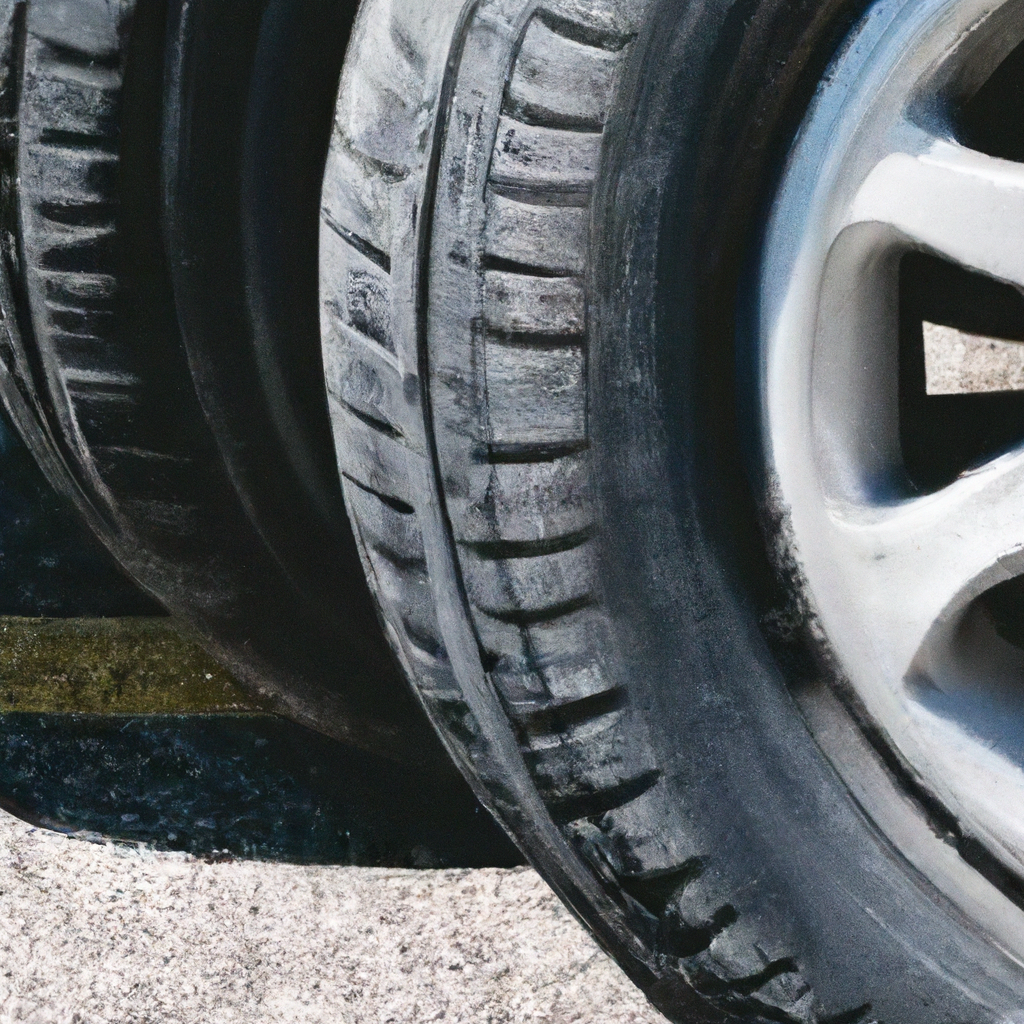Have you ever found yourself dreading the thought of an unexpected flat tire? Whether it’s a nail on the road or an unfortunate encounter with a pothole, these unexpected expenses can quickly add up. That’s where tire insurance comes in. But is it really worth the investment? In this article, we will explore the pros and cons of tire insurance, helping you make an informed decision about whether it’s a worthwhile investment to protect yourself from those pesky and costly tire mishaps.
Overview of Tire Insurance
What is tire insurance?
Tire insurance, also known as tire protection coverage, is an insurance policy that covers the repair or replacement costs of tires in the event of damage or wear and tear. It is designed to provide financial protection and peace of mind to vehicle owners who want to safeguard their tires from unexpected expenses.
How does tire insurance work?
When you purchase tire insurance, you pay a premium to the insurance provider. In return, the provider agrees to cover the costs of repairing or replacing your tires if they are damaged due to covered incidents. These incidents may include road hazards such as potholes, nails, debris, or other unexpected events that can cause tire damage.
Why do people consider purchasing tire insurance?
People consider purchasing tire insurance for various reasons. Firstly, it provides protection against the cost of unexpected tire repairs or replacements, which can often be expensive. Additionally, tire insurance offers peace of mind, knowing that you have financial coverage in case of tire damage. It also eliminates the worry of having to budget for tire-related expenses in the future.
Types of tire insurance coverage
There are different types of tire insurance coverage options available, each offering varying levels of protection. Some policies may cover both repair and replacement costs, while others might only provide coverage for replacement. It is important to carefully review the terms and conditions of the policy to understand what is included in the coverage and what may be excluded.
Cost Analysis
Comparing the cost of tire insurance to potential tire repair or replacement expenses
One of the key considerations when evaluating the value of tire insurance is to compare the cost of the insurance premium to the potential expenses of tire repair or replacement without coverage. If you frequently drive in areas with poor road conditions or are prone to encountering road hazards, the chances of incurring tire damage are higher. In such cases, the cost of tire insurance may be worth it to avoid unexpected expenses.
Factors affecting the cost of tire insurance
The cost of tire insurance can vary depending on several factors. These factors may include the type of vehicle you own, the make and model of your vehicle, your driving history, and the insurance provider. Additionally, the level of coverage you choose, the deductible amount, and any additional features you opt for can also impact the cost of the insurance.
Are there any hidden costs associated with tire insurance?
While tire insurance typically covers the costs of tire repair or replacement, it is important to review the policy carefully to understand any potential hidden costs. Some policies may have limitations on the number of claims allowed, or they may require you to pay a deductible before coverage kicks in. Additionally, certain types of tire damage, such as damage caused by improper maintenance or wear and tear, may not be covered. It is crucial to read the policy terms and conditions thoroughly to ensure you are aware of any potential hidden costs.

Coverage Benefits
What does tire insurance typically cover?
Tire insurance typically covers the costs of repairing or replacing damaged tires due to covered incidents. These incidents may include punctures, cuts, bruises, impact damage from road hazards, and other unforeseen events. Coverage may also extend to the labor fees associated with repairing or replacing the tires.
Are there any limitations or exclusions to the coverage?
While tire insurance provides valuable coverage, it is important to be aware of any limitations or exclusions. Some policies may not cover damage caused by wear and tear or improper tire maintenance. Additionally, coverage may be limited to specific types of tires or specific vehicle usage. It is crucial to carefully review the policy details to understand the extent of the coverage.
How can tire insurance help in emergency situations?
Tire insurance can provide immense help in emergency situations by offering financial protection and convenience. If you experience a tire blowout or damage while on the road, having tire insurance allows you to quickly and easily get your tire repaired or replaced without incurring unexpected expenses. This can be particularly beneficial if you are traveling in unfamiliar areas or during inclement weather conditions.
Coverage for tire damage caused by road hazards
Tire damage caused by road hazards, such as potholes, nails, glass, or debris, is a common concern for many drivers. Tire insurance can provide coverage for these types of damages, ensuring that you are protected against the costs of repair or replacement. This coverage can save you from large out-of-pocket expenses and provide peace of mind on the road.
Coverage for wear and tear
While tire insurance generally covers damage caused by unexpected incidents, it is essential to note that coverage for wear and tear may vary. Some policies may include limited coverage for tire wear and tear, while others may exclude it altogether. It is important to carefully review the policy terms to understand the coverage for wear and tear and to ensure it aligns with your specific needs.
Considerations before Purchasing Tire Insurance
Assessing personal driving habits
Before purchasing tire insurance, it is important to assess your personal driving habits. Consider factors such as the frequency of long-distance driving, the types of roads you typically drive on, and the overall wear and tear on your tires. If you frequently drive in rough road conditions or often encounter road hazards, tire insurance may be a worthwhile investment for you.
Analyzing the road conditions in your area
The road conditions in your area can play a significant role in determining the necessity of tire insurance. If you live in an area with poorly-maintained roads, construction zones, or a high incidence of road hazards, the risk of tire damage is greater. In such cases, tire insurance can provide valuable protection and potentially save you from expensive repairs or replacements.
Evaluating the quality and durability of your tires
The quality and durability of your tires should also be taken into consideration when deciding on tire insurance. If you have recently purchased high-quality, durable tires that are less prone to damage, the need for additional coverage may be lower. However, if your tires are older or of lower quality, they may be more susceptible to damage, and tire insurance can be a beneficial investment.
Determining the likelihood of needing tire repairs or replacements
Consider your driving patterns and the likelihood of needing tire repairs or replacements in the future. If you frequently drive long distances, have a history of encountering road hazards, or drive in areas with extreme weather conditions, the chances of tire damage may be higher. In such cases, tire insurance can provide peace of mind and financial protection in case of unexpected tire issues.

Alternatives to Tire Insurance
Manufacturer warranties and road hazard protection
Before purchasing tire insurance, it is worth exploring alternative options, such as manufacturer warranties or road hazard protection plans. Many tire manufacturers provide warranties that cover tire defects or premature wear. Additionally, some tire retailers offer road hazard protection plans that provide coverage for tire damage caused by road hazards. These options may provide similar benefits to tire insurance at a potentially lower cost.
Setting up a personal tire maintenance fund
Another alternative to tire insurance is setting up a personal tire maintenance fund. By regularly setting aside a small amount of money specifically for tire repairs or replacements, you can be financially prepared for unexpected expenses. Although this option may require more discipline and foresight, it can be a cost-effective solution in the long run.
Using credit card benefits for tire-related issues
Certain credit cards offer benefits that can be utilized for tire-related issues. For example, some credit cards provide roadside assistance services that can help with emergency tire repairs or towing. Additionally, some credit cards offer extended warranties or purchase protection, which can cover tire damage or defects. Review the benefits of your credit cards to determine if they provide any coverage that can be used for tire-related issues.
Consumer Opinions and Experiences
Reviewing feedback from individuals who have purchased tire insurance
When considering the value and benefits of tire insurance, it can be helpful to review feedback from individuals who have already purchased such coverage. Reading online reviews, forums, or seeking opinions from friends or family members who have firsthand experience can provide valuable insights into the pros and cons of tire insurance.
Pros and cons of tire insurance based on customer testimonials
Customers who have purchased tire insurance often highlight the peace of mind and financial protection it offers. They appreciate not having to worry about unexpected tire expenses and the convenience of a simple claims process. However, some customers may feel that the cost of the insurance premium outweighs the potential benefits, especially if they have low-risk driving habits or high-quality tires.
Common misconceptions about tire insurance debunked
There are several common misconceptions about tire insurance that can influence people’s perception of its value. Debunking these misconceptions is crucial in making an informed decision. Some misconceptions include the belief that tire insurance is unnecessary if the vehicle already has a warranty or that it only covers tire punctures. It is important to thoroughly understand the coverage and limitations of tire insurance to navigate through these misconceptions.

Insurance Provider Considerations
Researching the reputation and reliability of insurance providers
When selecting a tire insurance provider, it is important to research their reputation and reliability. Look for customer reviews, ratings, and testimonials to gauge the experiences of other policyholders. Check if the provider has a strong financial standing and a history of efficiently handling claims. Choosing an insurance provider with a good track record can give you confidence and peace of mind.
Comparing the terms and conditions of different tire insurance policies
Just like any insurance policy, the terms and conditions of tire insurance can vary from one provider to another. It is essential to carefully compare these terms and conditions to understand the coverage, limitations, and exclusions. Pay close attention to factors such as claim limits, deductibles, waiting periods, and any additional features or services offered. By comparing multiple policies, you can make an informed decision that aligns with your needs and budget.
Seeking recommendations from trusted sources
For a clearer picture of reliable insurance providers, consider seeking recommendations from trusted sources such as friends, family, or automotive professionals. Hearing about their firsthand experiences with different providers can offer valuable insights and help you make a more informed decision. Recommendations from trusted sources can narrow down your choices and ensure you choose an insurance provider that meets your requirements.
Influence of Vehicle Type and Usage
Is tire insurance more beneficial for certain vehicles?
Tire insurance may be more beneficial for certain vehicles depending on their usage and the nature of the tires. Vehicles that frequently encounter off-road conditions, rough terrains, or road hazards may benefit greatly from tire insurance. Additionally, vehicles with low-profile or high-performance tires, which are generally more expensive to repair or replace, may find tire insurance particularly valuable.
Analyzing the impact of vehicle usage on the need for tire insurance
Your vehicle’s usage plays a crucial role in determining whether tire insurance is necessary. If you primarily use your vehicle for short commutes and have low mileage, the likelihood of encountering tire damage may be lower. However, if you frequently travel long distances, engage in off-road activities, or use your vehicle for business purposes, the chances of tire damage increase, making tire insurance a worthwhile consideration.
Commercial vehicles and fleet considerations
For owners of commercial vehicles or fleet operators, tire insurance can be of significant importance. These vehicles are often subjected to heavy usage, prolonged driving hours, and road hazards on a daily basis. The cost of tire repairs or replacements can escalate quickly, making tire insurance an essential investment to protect both the vehicles and the business’s bottom line.

Claim Process and Customer Support
Understanding the procedure for filing a tire insurance claim
It is essential to understand the procedure for filing a tire insurance claim before making a purchase. Familiarize yourself with the claim process of the insurance provider, including the necessary documentation, the timeline for claim processing, and any steps or requirements that need to be followed. This knowledge will ensure a smoother experience in the event of needing to file a claim.
Are there any specific requirements or documentation needed?
Each insurance provider may have specific requirements or documentation needed to process a tire insurance claim. This may include providing proof of tire purchase or ownership, photographs of the damaged tire, or a detailed account of the incident. Understanding the specific requirements in advance will help streamline the claims process and prevent any delays or complications.
Assessing the responsiveness and efficiency of customer support
The responsiveness and efficiency of customer support can greatly impact the overall experience of having tire insurance. Before purchasing a policy, consider reaching out to the insurance provider’s customer support team with any questions or concerns. Gauge their response time, the clarity of their answers, and their willingness to assist you. A provider with prompt and helpful customer support will ensure a smoother claims process and a positive experience as a policyholder.
Expert Recommendations
Insights from insurance professionals and industry experts
Experts in the insurance industry often provide valuable insights and recommendations regarding tire insurance. Their knowledge and experience can shed light on the pros and cons of tire insurance, as well as its value for different individuals and situations. Consulting with insurance professionals or reading expert opinions can provide a well-rounded perspective that aids in making an informed decision.
Should consumers opt for tire insurance based on expert opinions?
While expert opinions are valuable, it is important to evaluate them in the context of your specific needs and circumstances. Consider the expertise and credibility of the experts, as well as their understanding of your unique situation. Ultimately, the decision to opt for tire insurance should be based on a combination of expert opinions, personal analysis, and assessment of your own risk tolerance.
Factors to consider when deciding on tire insurance
When considering tire insurance, there are several factors to weigh to make an informed decision. These factors include your personal driving habits, the road conditions in your area, the quality of your tires, and the potential costs of tire repair or replacement. Additionally, factors such as the reputation of the insurance provider, the specific coverage and terms of the policy, and alternative options should also be considered. By carefully evaluating these factors, you can determine whether tire insurance is a worthwhile investment for you.
In conclusion, tire insurance offers valuable coverage and financial protection for unexpected tire damage or wear and tear. To determine whether tire insurance is a worthwhile investment, it is essential to assess your personal driving habits, analyze the road conditions in your area, evaluate the quality of your tires, and consider the potential costs of tire repair or replacement. Comparing the cost of tire insurance to potential expenses and exploring alternative options can also help in making an informed decision. Additionally, researching reputable insurance providers, seeking recommendations, and reviewing customer testimonials can provide valuable insights. By carefully considering all these factors, you can make a decision that aligns with your needs and offers peace of mind on the road.


